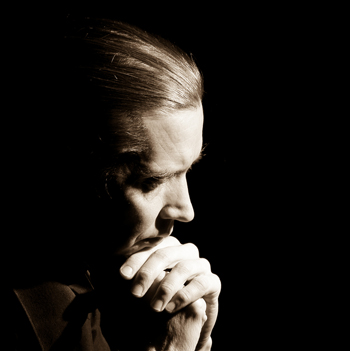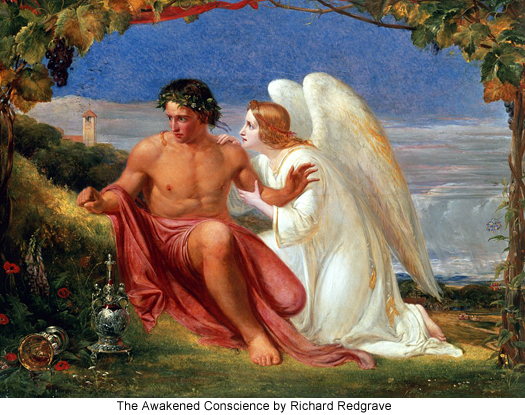
God and the Spiritual Experience
As a reality in human spiritual experience God is not a mystery. But when an attempt is made to make plain the realities of the spirit world to the physical minds of the material order, mystery appears: mysteries so subtle and so profound that only the faith-grasp of the God-knowing mortal can achieve the philosophic miracle of the recognition of the Infinite by the finite, the discernment of the eternal God by the evolving mortals of the material worlds of time and space. ~ The Urantia Book, (1:4.7)
God is to science a cause, to philosophy an idea, to religion a person, even the loving heavenly Father. God is to the scientist a primal force, to the philosopher a hypothesis of unity, to the religionist a living spiritual experience. ~ The Urantia Book, (1:6.2)
The more completely man understands himself and appreciates the personality values of his fellows, the more he will crave to know the Original Personality, and the more earnestly such a God-knowing human will strive to become like the Original Personality. You can argue over opinions about God, but experience with him and in him exists above and beyond all human controversy and mere intellectual logic. The God-knowing man describes his spiritual experiences, not to convince unbelievers, but for the edification and mutual satisfaction of believers. ~ The Urantia Book, (1:6.6)
The entire experience of Adjuster communion is one involving moral status, mental motivation, and spiritual experience. The self-realization of such an achievement is mainly, though not exclusively, limited to the realms of soul consciousness, but the proofs are forthcoming and abundant in the manifestation of the fruits of the spirit in the lives of all such inner-spirit contactors. ~ The Urantia Book, (5:2.6)
Man’s physical environment entails the battle for existence; the social surroundings necessitate ethical adjustments; the moral situations require the making of choices in the highest realms of reason; the spiritual experience (having realized God) demands that man find him and sincerely strive to be like him. ~ The Urantia Book, (5:5.1)
In cosmic evolution matter becomes a philosophic shadow cast by mind in the presence of spirit luminosity of divine enlightenment, but this does not invalidate the reality of matter-energy. Mind, matter, and spirit are equally real, but they are not of equal value to personality in the attainment of divinity. Consciousness of divinity is a progressive spiritual experience. ~ The Urantia Book, (12:8.15)
The truth, beauty, and goodness of man’s world are unified by the increasing spirituality of the experience of mortals ascending toward Paradise realities. The unity of truth, beauty, and goodness can only be realized in the spiritual experience of the God-knowing personality. ~ The Urantia Book, (196:3.21)
Strong Character
Matter-energy is recognized by the mathematical logic of the senses; mind-reason intuitively knows its moral duty; spirit-faith (worship) is the religion of the reality of spiritual experience. These three basic factors in reflective thinking may be unified and co-ordinated in personality development, or they may become disproportionate and virtually unrelated in their respective functions. But when they become unified, they produce a strong character consisting in the correlation of a factual science, a moral philosophy, and a genuine religious experience. And it is these three cosmic intuitions that give objective validity, reality, to man’s experience in and with things, meanings, and values. ~ The Urantia Book, (16:6.10)
A New Symbolism for Spiritual Experience
Regardless of the drawbacks and handicaps, every new revelation of truth has given rise to a new cult, and even the restatement of the religion of Jesus must develop a new and appropriate symbolism. Modern man must find some adequate symbolism for his new and expanding ideas, ideals, and loyalties. This enhanced symbol must arise out of religious living, spiritual experience. And this higher symbolism of a higher civilization must be predicated on the concept of the Fatherhood of God and be pregnant with the mighty ideal of the brotherhood of man. ~ The Urantia Book, (87:7.6)
But a cult — a symbolism of rituals, slogans, or goals — will not function if it is too complex. And there must be the demand for devotion, the response of loyalty. Every effective religion unerringly develops a worthy symbolism, and its devotees would do well to prevent the crystallization of such a ritual into cramping, deforming, and stifling stereotyped ceremonials which can only handicap and retard all social, moral, and spiritual progress. No cult can survive if it retards moral growth and fails to foster spiritual progress. The cult is the skeletal structure around which grows the living and dynamic body of personal spiritual experience — true religion. ~ The Urantia Book, (87:7.10)
 Prayer in Spiritual Experience
Prayer in Spiritual Experience
...the efficacy of prayer in the personal spiritual experience of the one who prays is in no way dependent on such a worshiper’s intellectual understanding, philosophic acumen, social level, cultural status, or other mortal acquirements. The psychic and spiritual concomitants of the prayer of faith are immediate, personal, and experiential. There is no other technique whereby every man, regardless of all other mortal accomplishments, can so effectively and immediately approach the threshold of that realm wherein he can communicate with his Maker, where the creature contacts with the reality of the Creator, with the indwelling Thought Adjuster. ~ The Urantia Book, (91:6.7)
Melchizedek's One-God Religion Is Still Alive
And Machiventa was successful in achieving the purpose of his unusual bestowal; when Michael made ready to appear on Urantia, the God concept was existent in the hearts of men and women, the same God concept that still flames anew in the living spiritual experience of the manifold children of the Universal Father as they live their intriguing temporal lives on the whirling planets of space. ~ The Urantia Book, (98:7.12)
Institutional Religion and Spiritual Experience
Institutional religion cannot afford inspiration and provide leadership in this impending world-wide social reconstruction and economic reorganization because it has unfortunately become more or less of an organic part of the social order and the economic system which is destined to undergo reconstruction. Only the real religion of personal spiritual experience can function helpfully and creatively in the present crisis of civilization. ~ The Urantia Book, (99:2.1)
Until the human race progresses to the level of a higher and more general recognition of the realities of spiritual experience, large numbers of men and women will continue to show a personal preference for those religions of authority which require only intellectual assent, in contrast to the religion of the spirit, which entails active participation of mind and soul in the faith adventure of grappling with the rigorous realities of progressive human experience. ~ The Urantia Book, (155:5.8)
Never can the religions of authority come to unification. Human unity and mortal brotherhood can be achieved only by and through the superendowment of the religion of the spirit. Racial minds may differ, but all mankind is indwelt by the same divine and eternal spirit. The hope of human brotherhood can only be realized when, and as, the divergent mind religions of authority become impregnated with, and overshadowed by, the unifying and ennobling religion of the spirit — the religion of personal spiritual experience. ~ The Urantia Book, (155:6.8)
Personal Religion
Since true religion is a matter of personal spiritual experience, it is inevitable that each individual religionist must have his own and personal interpretation of the realization of that spiritual experience. Let the term “faith” stand for the individual’s relation to God rather than for the creedal formulation of what some group of mortals have been able to agree upon as a common religious attitude. “Have you faith? Then have it to yourself.” ~ The Urantia Book, (99:5.7)
True Values In Life
In physical life the senses tell of the existence of things; mind discovers the reality of meanings; but the spiritual experience reveals to the individual the true values of life. ~ The Urantia Book, (100:4.4)
In the spiritual experience of all personalities, always is it true that the real is the good and the good is the real. ~ The Urantia Book, (102:3.15)
 The Real Soul of Man's Cosmos
The Real Soul of Man's Cosmos
Revealed religion is the unifying element of human existence. Revelation unifies history, co-ordinates geology, astronomy, physics, chemistry, biology, sociology, and psychology. spiritual experience is the real soul of man’s cosmos. ~ The Urantia Book, (102:4.6)
Faith and Spiritual Experience
Though reason can always question faith, faith can always supplement both reason and logic. Reason creates the probability which faith can transform into a moral certainty, even a spiritual experience. God is the first truth and the last fact; therefore does all truth take origin in him, while all facts exist relative to him. God is absolute truth. As truth one may know God, but to understand — to explain — God, one must explore the fact of the universe of universes. The vast gulf between the experience of the truth of God and ignorance as to the fact of God can be bridged only by living faith. Reason alone cannot achieve harmony between infinite truth and universal fact.
Belief may not be able to resist doubt and withstand fear, but faith is always triumphant over doubting, for faith is both positive and living. The positive always has the advantage over the negative, truth over error, experience over theory, spiritual realities over the isolated facts of time and space. The convincing evidence of this spiritual certainty consists in the social fruits of the spirit which such believers, faithers, yield as a result of this genuine spiritual experience. Said Jesus: “If you love your fellows as I have loved you, then shall all men know that you are my disciples.” ~ The Urantia Book, (102:6.6)
The God-knowing individual is not one who is blind to the difficulties or unmindful of the obstacles which stand in the way of finding God in the maze of superstition, tradition, and materialistic tendencies of modern times. He has encountered all these deterrents and triumphed over them, surmounted them by living faith, and attained the highlands of spiritual experience in spite of them. But it is true that many who are inwardly sure about God fear to assert such feelings of certainty because of the multiplicity and cleverness of those who assemble objections and magnify difficulties about believing in God. It requires no great depth of intellect to pick flaws, ask questions, or raise objections. But it does require brilliance of mind to answer these questions and solve these difficulties; faith certainty is the greatest technique for dealing with all such superficial contentions. ~ The Urantia Book, (102:7.6)
When theology masters religion, religion dies; it becomes a doctrine instead of a life. The mission of theology is merely to facilitate the self-consciousness of personal spiritual experience. Theology constitutes the religious effort to define, clarify, expound, and justify the experiential claims of religion, which, in the last analysis, can be validated only by living faith. In the higher philosophy of the universe, wisdom, like reason, becomes allied to faith. Reason, wisdom, and faith are man’s highest human attainments. Reason introduces man to the world of facts, to things; wisdom introduces him to a world of truth, to relationships; faith initiates him into a world of divinity, spiritual experience. ~ The Urantia Book, (103:9.6)
Science (knowledge) is founded on the inherent (adjutant spirit) assumption that reason is valid, that the universe can be comprehended. Philosophy (co-ordinate comprehension) is founded on the inherent (spirit of wisdom) assumption that wisdom is valid, that the material universe can be co-ordinated with the spiritual. Religion (the truth of personal spiritual experience) is founded on the inherent (Thought Adjuster) assumption that faith is valid, that God can be known and attained. ~ The Urantia Book, (103:9.8)
When reason once recognizes right and wrong, it exhibits wisdom; when wisdom chooses between right and wrong, truth and error, it demonstrates spirit leading. And thus are the functions of mind, soul, and spirit ever closely united and functionally interassociated. Reason deals with factual knowledge; wisdom, with philosophy and revelation; faith, with living spiritual experience. Through truth man attains beauty and by spiritual love ascends to goodness. ~ The Urantia Book, (103:9.10)
I am a son of "I AM"
If science, philosophy, or sociology dares to become dogmatic in contending with the prophets of true religion, then should God-knowing men reply to such unwarranted dogmatism with that more farseeing dogmatism of the certainty of personal spiritual experience, “I know what I have experienced because I am a son of I AM.” If the personal experience of a faither is to be challenged by dogma, then this faith-born son of the experiencible Father may reply with that unchallengeable dogma, the statement of his actual sonship with the Universal Father. ~ The Urantia Book, (102:7.7)
The Birth of the Spirit
You do not enter the kingdom of heaven unless you have been “born again” — born of the Spirit. Many spiritual births are accompanied by much anguish of spirit and marked psychological perturbations, as many physical births are characterized by a “stormy labor” and other abnormalities of “delivery.” Other spiritual births are a natural and normal growth of the recognition of supreme values with an enhancement of spiritual experience, albeit no religious development occurs without conscious effort and positive and individual determinations. ~ The Urantia Book, (103:2.1)
The "Fraternity Impulse"
The science of the material world enables man to control, and to some extent dominate, his physical environment. The religion of the spiritual experience is the source of the fraternity impulse which enables men to live together in the complexities of the civilization of a scientific age. ~ The Urantia Book, (103:7.9)
The Essence of Religion
Theology deals with the intellectual content of religion, metaphysics (revelation) with the philosophic aspects. Religious experience is the spiritual content of religion. Notwithstanding the mythologic vagaries and the psychologic illusions of the intellectual content of religion, the metaphysical assumptions of error and the techniques of self-deception, the political distortions and the socioeconomic perversions of the philosophic content of religion, the spiritual experience of personal religion remains genuine and valid. ~ The Urantia Book, (103:9.1)
Observe the Observer
In science the human self observes the material world; philosophy is the observation of this observation of the material world; religion, true spiritual experience, is the experiential realization of the cosmic reality of the observation of the observation of all this relative synthesis of the energy materials of time and space. ~ The Urantia Book, (112:2.8)

The Seraphim Help Us in Our Spiritual Experience
The Adjuster is the presence of the Father; the Spirit of Truth, the presence of the Sons. These divine endowments are unified and co-ordinated on the lower levels of human spiritual experience by the ministry of the guardian seraphim. The angelic servers are gifted in combining the love of the Father and the mercy of the Son in their ministry to mortal creatures. ~ The Urantia Book, (113:3.3)
Man, The Civilized
Man, the savage, was helpless before the onslaughts of natural forces, was slavish before the cruel mastery of his own inner fears. Semicivilized man is beginning to unlock the storehouse of the secrets of the natural realms, and his science is slowly but effectively destroying his superstitions while at the same time providing a new and enlarged factual basis for the comprehension of the meanings of philosophy and the values of true spiritual experience. Man, the civilized, will someday achieve relative mastery of the physical forces of his planet; the love of God in his heart will be effectively outpoured as love for his fellow men, while the values of human existence will be nearing the limits of mortal capacity. ~ The Urantia Book, (118:10.4)
Time-Consciousness
No mere animal could possess a time self-consciousness. Animals possess a physiological co-ordination of associated sensation-recognition and memory thereof, but none experience a meaningful recognition of sensation or exhibit a purposeful association of these combined physical experiences such as is manifested in the conclusions of intelligent and reflective human interpretations. And this fact of self-conscious existence, associated with the reality of his subsequent spiritual experience, constitutes man a potential son of the universe and foreshadows his eventual attainment of the Supreme Unity of the universe. ~ The Urantia Book, (133:7.8)
The Kingdom of Heaven
[Jesus] early taught his followers that the kingdom of heaven was a spiritual experience having to do with the enthronement of God in the hearts of men. ~ The Urantia Book, (137:7.13)
The Rodan Teachings
If your religion is a spiritual experience, your object of worship must be the universal spirit reality and ideal of all your spiritualized concepts. All religions based on fear, emotion, tradition, and philosophy I term the intellectual religions, while those based on true spirit experience I would term the true religions. The object of religious devotion may be material or spiritual, true or false, real or unreal, human or divine. Religions can therefore be either good or evil. ~ The Urantia Book, (160:5.3)
The religion of Jesus demands living and spiritual experience. Other religions may consist in traditional beliefs, emotional feelings, philosophic consciousness, and all of that, but the teaching of the Master requires the attainment of actual levels of real spirit progression.
The consciousness of the impulse to be like God is not true religion. The feelings of the emotion to worship God are not true religion. The knowledge of the conviction to forsake self and serve God is not true religion. The wisdom of the reasoning that this religion is the best of all is not religion as a personal and spiritual experience. True religion has reference to destiny and reality of attainment as well as to the reality and idealism of that which is wholeheartedly faith-accepted. And all of this must be made personal to us by the revelation of the Spirit of Truth. ~ The Urantia Book, (160:5.12)
The Spirit of Truth
The bestowal of the Spirit of Truth was independent of all forms, ceremonies, sacred places, and special behavior by those who received the fullness of its manifestation. When the spirit came upon those assembled in the upper chamber, they were simply sitting there, having just been engaged in silent prayer. The spirit was bestowed in the country as well as in the city. It was not necessary for the apostles to go apart to a lonely place for years of solitary meditation in order to receive the spirit. For all time, Pentecost disassociates the idea of spiritual experience from the notion of especially favorable environments. ~ The Urantia Book, (194:3.10)


